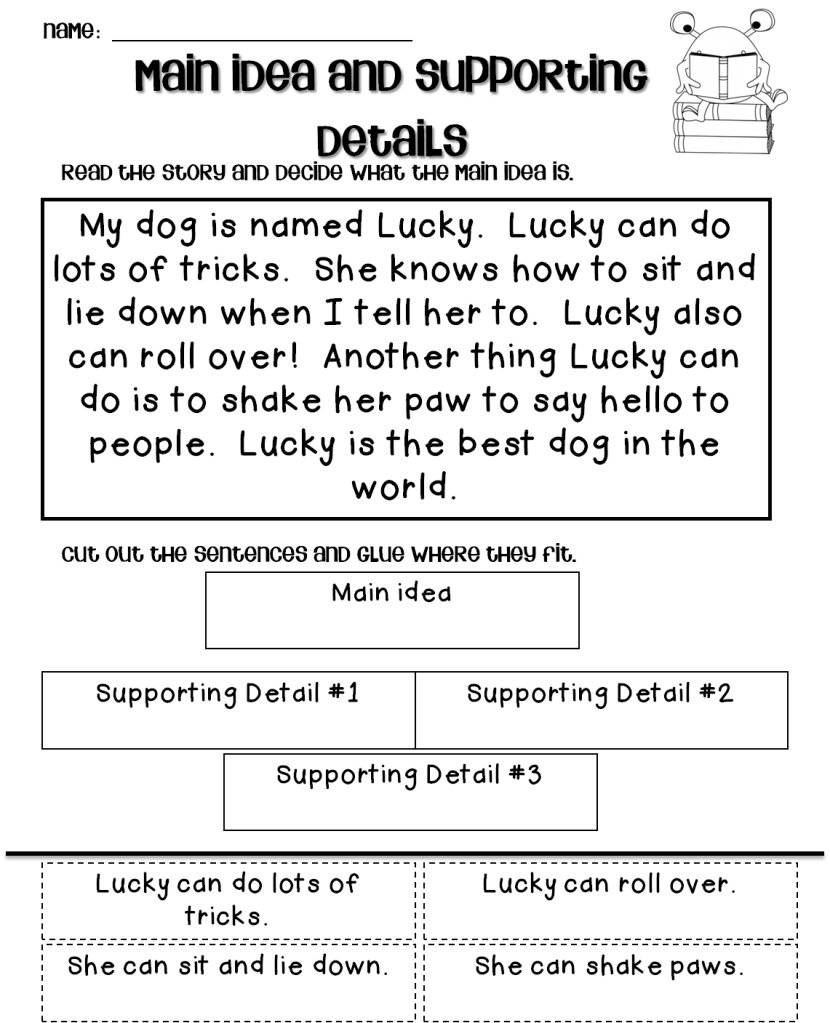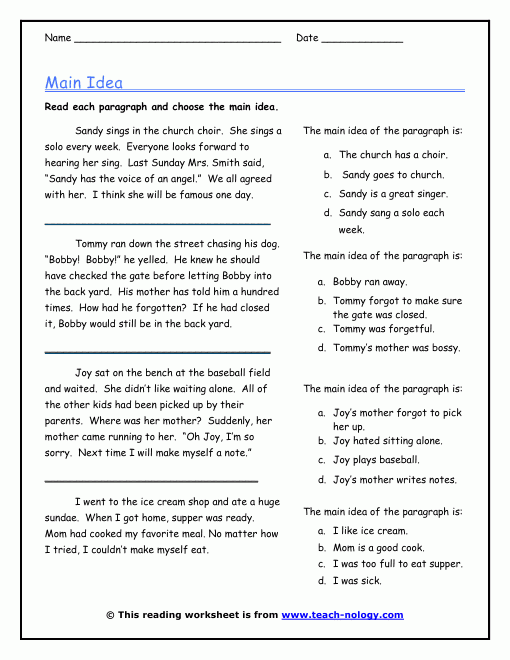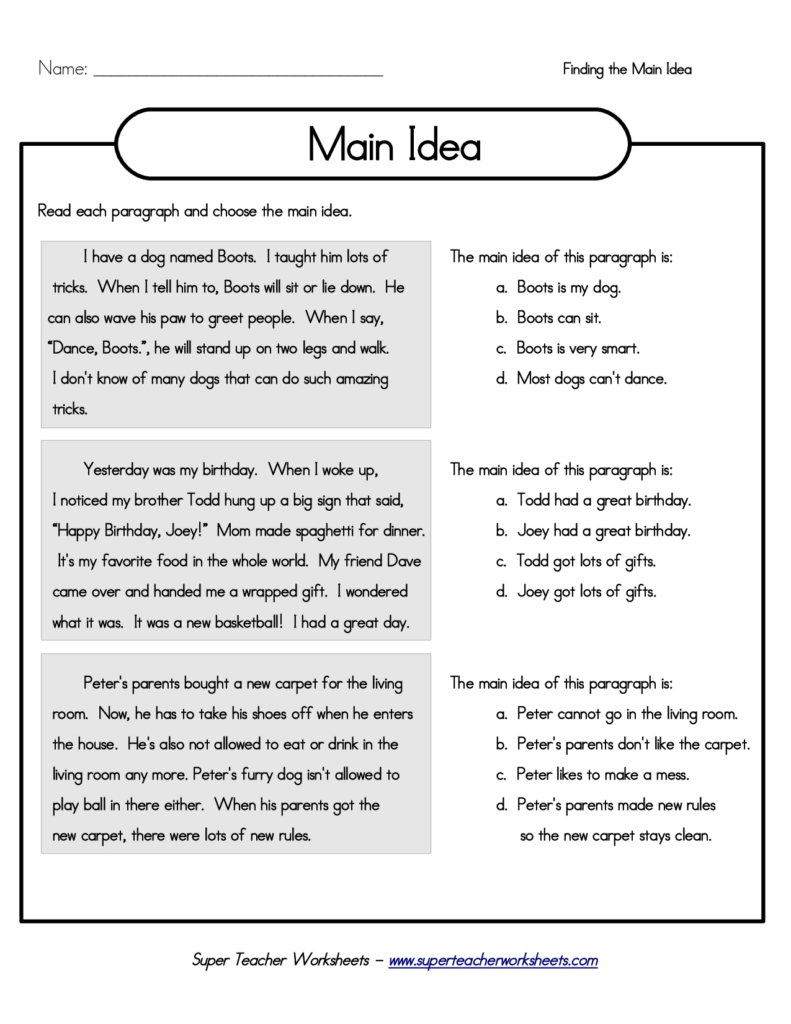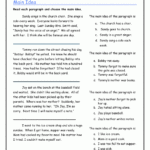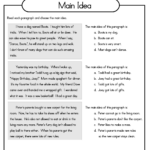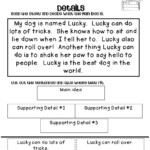Main Idea Of Story Sentence Worksheet Grade Three Template – A compound sentence is composed of multiple independent clauses that are linked by a conjunction. These sentences are generally more readable and appealing to readers. To practice these types of sentences, you can download a 26-page worksheet package for classroom or home use. The worksheets are designed for students of all ages and can be used by teachers and parents alike.
Compound sentences are linked by a conjunction
A coordinating conjunction joins two or more independent clauses, phrases, or words. It’s sometimes referred to as a comma splice. In writing, a coordinating conjunction can be replaced by a semicolon. A coordinating conjunction does not necessarily make a sentence compound.
There are two types of basic compound sentences. The first type is known as a complex one, which has one independent clause and at least one dependent clause. This type of sentence uses a conjunction to join two separate clauses. It signals to the reader that both clauses have equal importance.
The second type of compound sentence uses a conjunction to link two independent clauses. The conjunction connects the clauses, making the flow of the sentence more natural. While it is not required, it is common practice to separate independent clauses in a single sentence.
They consist of two or more independent clauses
A compound sentence is one that contains two or more independent clauses. The independent clause expresses a complete thought and the dependent clause expresses a partial thought. The dependent clauses are referred to as dependent clauses because they are dependent upon the independent clauses for meaning. The dependent clauses are introduced by using a conjunction such as but or if to join the two clauses.
Compound sentences are common and are often found in school books you read for fun. You might hear, for example, the sentence “Kate doesn’t like watching cartoons because they are too loud.” This means that she does not like the cartoons. Therefore, she doesn’t watch them. An independent clause and a dependent clause are different because they cannot be used as a whole sentence.
To form a compound sentence, use the coordinating conjunction but to connect the two clauses. It helps the reader understand the meaning of the two clauses and creates a smooth flow. However, if you don’t use a coordinating conjunction, the sentence will read like a run-on.
They require dashes
You can use dashes to punctuate sentences. Unlike brackets, which can be confusing, dashes separate two words. They serve two purposes: to emphasize additional information and separate words from the surrounding text. In addition, they are used to indicate a connection between two ideas.
A compound sentence is a sentence that contains two or more independent clauses connected by a conjunction or a period. In a compound sentence, the dash represents the difference between the first and the second clause, and it can also indicate an interruption. However, not all compound words require hyphens. Students can use the compound sentence worksheets to learn how to use them correctly.
These resources have been created by experienced teachers to ensure that the content is suitable for students. They have been updated to reflect the most recent National Curriculum.
They can be used in any international curriculum
For students learning about compound sentences, worksheets on compound sentence can be a valuable resource. These types of sentences are often considered more appealing to readers. These sentences are made up of independent clauses joined by subordinating conditions. These words serve to connect independent clauses and help students understand the relationship between them. Usually, the main clause contains the more important idea, while the subordinating clause introduces the less important idea.
Complex sentences can be a great way for students to express complex ideas and add variety to their writing. When writing these kinds of sentences, students should be careful about where the commas are placed. Students should proofread all work, particularly long and complex sentences. This will help them understand the meaning of the sentences they write.
